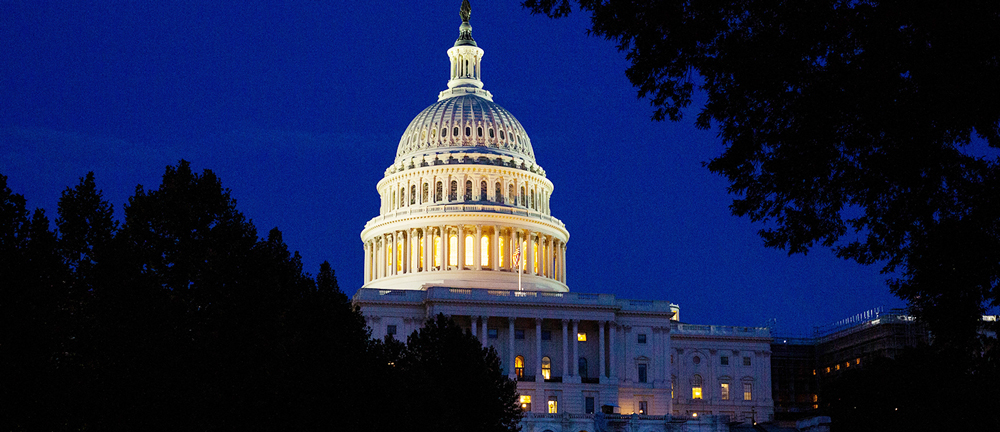Middle-Market Public Policy Roundup
The House approves a stopgap budget to prevent a government shutdown, and some businesses are feeling the pinch without a stimulus plan.

In this week’s roundup, we look at the Securities and Exchange Commission, which held a meeting last week where investment experts urged the agency to take stronger measures to protect new investors in private equity funds. We also summarize the House’s approval of a stopgap budget that will fund the government through the election and prevent an immediate shutdown, and efforts to pass a second stimulus package—which is becoming less likely and threatens to derail the economic recovery.
Investment Experts Urge SEC to Adopt Stricter Protections for New PE Investors
- With the expansion of the Securities and Exchange Commission’s accredited investor definition earlier this month, more retail investors could get a piece of private equity through their retirement savings and 401(k)s, but some investment experts worry existing protections are inadequate and recommend the agency adopt stricter measures.
- During a meeting of the SEC’s Private Investments Subcommittee last week, Ludovic Phalippou, professor of finance at Oxford University’s Said Business School, said the agency should create a level playing field for performance reporting standards across private equity funds and conventional mutual funds.
- The subcommittee’s findings will likely be reported to SEC commissioners, but it’s unclear if they will be used in any future regulation. [Middle Market Growth / Benjamin Glick]
House Approves Budget Stopgap to Avoid Government Shutdown
- In a sweeping bipartisan vote that takes a government shutdown off the table, the House passed a temporary government-wide funding bill Tuesday night, shortly after President Donald Trump prevailed in a behind-the-scenes fight over his farm bailout.
- The stopgap measure, which passed 359 to 57, will keep federal agencies up and running until December. The budget year ends Sept. 30. [AP]
- The short-term funding fix now goes to the Senate, where it’s expected to pass easily before the deadline.
- If signed by President Donald Trump, the stopgap budget would also postpone some contentious budget items, like border wall funding, to the lame-duck session of Congress.
- The deal was negotiated by House Speaker Nancy Pelosi, D-Calif., and Treasury Secretary Steven Mnuchin over the past several days. [Politico / Sarah Ferris and Caitlin Emma]
- Talks abruptly collapsed late Friday just as a deal appeared within reach. Pelosi released a partisan bill on Monday that was swiftly rejected by Republicans. But on Tuesday morning, Pelosi and Mnuchin resumed negotiations, and Pelosi announced late Tuesday that they had reached a deal.
- The last federal government shutdown, which lasted from December 2018 to January 2019 was the longest in U.S. history, and impacted financial regulators like the Securities and Exchange Commission and the Department of Labor from carrying out their activities.
- In an already contentious election year, lawmakers and the White House likely want to avoid a fight over the budget until after November. [The Washington Post / Erica Werner]
Businesses Feeling Pressure as Pre-election Stimulus Hopes Dim
- Members of Congress are preparing to leave Washington this week until after the election without passing a coronavirus economic stimulus bill that both parties, businesses and hard-hit Americans all agree is desperately needed. [CNN / Ted Barrett, Manu Raju and Lauren Fox]
- The lack of action on a stimulus has rattled Wall Street. U.S. stocks fell sharply Wednesday, extending their turbulent run as hopes for additional fiscal stimulus dimmed, declining by more than 500 points. [The Wall Street Journal / Sam Goldfarb and Joe Wallace]
- Hard-hit industries like airlines could run out of cash before the end of the year, which could prompt tens of thousands of layoffs, threatening to derail the economic recovery. [Yahoo! Finance / Adam Shapiro]
- Treasury Secretary Steven Mnuchin says the Trump administration still supports a second round of stimulus checks in the next federal aid package. [Forbes / Zack Friedman]
- Still, the chances Congress will pass a stimulus bill will likely worsen as lawmakers and the White House feud in coming weeks over filling Ruth Bader Ginsburg’s seat on the Supreme Court. [USA Today / Christal Hayes, Michael Collins and Nicholas Wu]

Benjamin Glick is Middle Market Growth’s associate editor.


